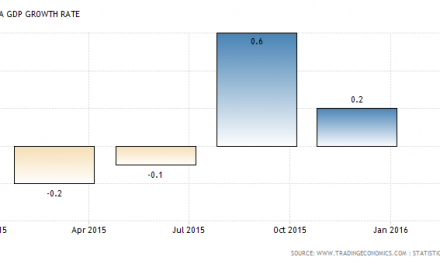Ever since March 2009, the Great Recession ended with a recovery coming slow and weak.
After that came the sell-off in August, when the stocks significantly dropped 13% to 14% in value, which raised fears that the global economy, especially China, is growing weaker than anyone could have thought.
At that time, we believed in the probability that a correction would occur and the stock market would recover. They did grow strongly; however, last week’s jobs report blew out the growing belief that the F.R. would heighten the interest rates for December. For the first time since nine years ago, it was enough to slow down the shy of the past highs.
The stock market earnings over the past several weeks has sent mixed signals about the economy of the United States.
Stable sales in the housing and auto industries as well as significant customer confidence were followed by slow September job growth, particularly in China and Europe.
In Europe and Japan, it meant keeping the prices the same, while in China, central bankers were ready to cut down rates.
The flood of liquidity coming from central banks globally has prevented efforts and tied the hands of FED because of the fears of global weakness and the impact of the USD on businesses.
The latest weekly jobs report probably changed the perspective completely. During October, 271,000 new jobs were created and a slight wage growth had caught many by surprise.This finally gave Fed Chairwoman, J. Yellen, the opportunity she was waiting for to put into motion her long-term plans to raise interest rates in a gradual and modest manner.
The lowering of interest rates in the United States as well as the creation of thousands of new jobs has significantly boosted the economy , leading to an unprecedented strengthening of the US dollar- the major exchange currency in the world. On the other side, most developing countries like China are busy increasing interest rates , while the prices of their export commodities are being lowered, therefore they find it difficult to cope with the devaluation of their currencies- this is expected to result in an increase in inflation, a condition that will result in higher food prices, loss of jobs and further weakening of the currencies.
Current data shows a promising rebound for the Shanghai stock market, however , there are several hurdles the country must scale through in order to maintain the promising rebound and ensure that the country does not slide into another series of recession . first of all, China must cut his reliance on foreign imports, this will eventually lead to a strengthening of its currency, secondly, Interest rates must be normalized and other issues such as job creation and the current environmental pollution that has plagued the country must be dealt with immediately. though China’s stock market is not as volatile as some other markets of emerging countries, there are however many countries that rely heavily on China’s performance on the global stage.



